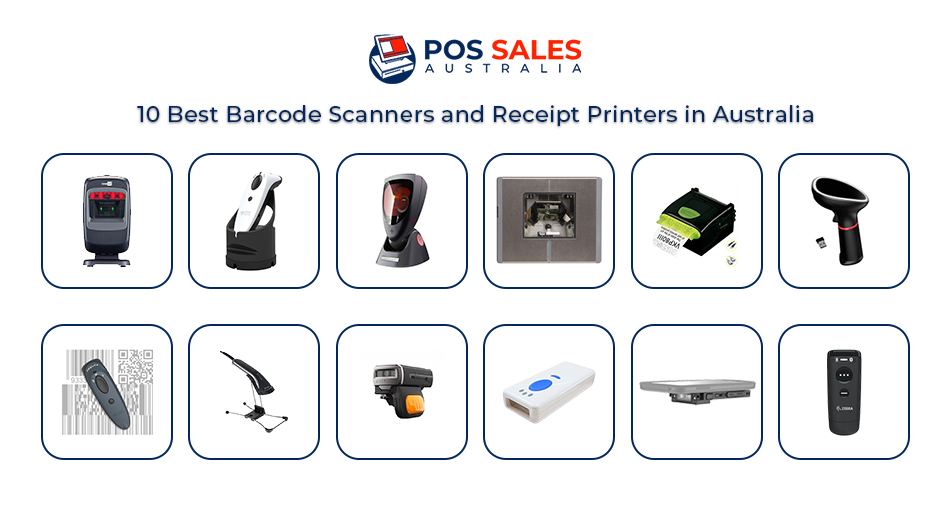Top-Rated Barcodes Scanners for Warehouse
Top-Rated Barcodes Scanners for Warehouse
Blog Article
Why Barcode Scanners Are Crucial for Modern Retail and Warehousing
In the quickly advancing landscape of retail and warehousing, the assimilation of barcode scanners has ended up being a crucial aspect in simplifying procedures and improving accuracy. As companies aim for affordable advantage, understanding the multifaceted advantages of barcode innovation reveals its important role in enhancing source allowance and promoting robust distributor partnerships.
Advantages of Barcode Scanners
Barcode scanners supply various advantages that considerably boost operational efficiency in retail and warehousing atmospheres. The automation of data entrance processes eliminates the errors generally related to manual input, causing enhanced accuracy in inventory tracking and sales transactions. With the ability to quickly scan items, companies can quicken checkout times, improving the consumer experience and decreasing delay times.
Additionally, barcode scanners assist in real-time data collection, enabling immediate updates to inventory degrees and sales documents. This ability makes it possible for companies to react without delay to adjustments in demand and optimize supply levels, minimizing excess stock and reducing stockouts. In addition, the integration of barcode scanners with stock management systems improves procedures such as order satisfaction and product returns, even more boosting functional performance.
By lowering labor prices connected with hands-on stock management and decreasing errors that can lead to monetary losses, barcode scanners add to overall productivity. In general, the application of barcode scanners is a critical financial investment that yields considerable returns in performance and operational quality.
Enhancing Supply Monitoring
Reliable inventory administration is essential for preserving functional performance in retail and warehousing setups. Barcode scanners play a critical role in this process by enhancing the tracking of stock degrees, product areas, and stock movements. By automating information capture, these tools decrease human error, bring about more exact stock records.
Making use of barcode scanners enables real-time exposure right into supply quantities, allowing businesses to make informed choices regarding reordering and supply rotation. This immediacy aids avoid overstocking or stockouts, both of which can adversely influence consumer contentment and profit margins.
In addition, barcode scanning assists in reliable stock audits. With fast scanning capacities, staff can conduct inventory checks swiftly, making sure that disparities are recognized and rectified immediately. Boosted supply accuracy not just supports functional effectiveness however also enhances connections with providers, as precise data can cause far better arrangement terms and boosted order gratification.

Improving Check Out Performance
As consumers progressively demand quicker and extra efficient buying experiences, boosting checkout processes has actually ended up being a top priority for retailers. Implementing barcode scanners plays an essential duty in this venture, substantially enhancing the deal procedure. By allowing cashiers to scan items rapidly, barcode technology reduces the time invested on each sale, hence reducing overall wait times for customers.
In addition, barcode scanners assist in the precise identification of products, minimizing the possibility for mispricing and making certain that customers are charged properly. This efficiency not only boosts customer fulfillment but also improves the retailer's operational effectiveness. With the capability to process multiple things in quick sequence, stores can handle high quantities of deals throughout top purchasing hours without sacrificing solution top quality.
Additionally, incorporating barcode scanners with point-of-sale systems allows real-time inventory updates, supplying valuable insights right into stock degrees. This immediacy permits retailers to manage inventory extra efficiently, making sure that preferred things remain in supply and lowering the possibility of lost sales. Overall, the adoption of barcode scanning technology is crucial for enhancing checkout effectiveness, eventually resulting in enhanced customer experiences and increased sales for merchants.
Lowering Human Mistake
In retail and warehousing environments, the execution of scanning technology significantly lowers human mistake throughout purchases. Traditional hand-operated entrance of product details is vulnerable to mistakes, including inaccurate rates, misidentified things, and data entry mistakes. barcodes scanners. Barcode scanners streamline this process by automating the capture of thing data, ensuring precision and uniformity
By using barcode scanners, employees can quickly scan things as opposed to by hand inputting information. This automation decreases the danger of human oversight, supplying an extra trusted deal procedure. Researches reveal that mistakes in stock management can cause pricey discrepancies, influencing find this stock degrees and customer fulfillment. Barcode scanning reduces these threats by improving the precision of inventory matters and sales documents.
Additionally, barcode scanners boost accountability within the labor force. With clear information tracks created with scanning, disparities can be determined and attended to without delay, promoting a society of precision. barcodes scanners. The decrease useful site of human error not only enhances operational performance but likewise develops consumer trust fund, as consumers obtain the correct products at the right prices. On the whole, the adoption of barcode modern technology is an essential step towards attaining operational excellence in retail and warehousing settings.
Future Patterns in Barcode Innovation
The development of barcode technology is poised to transform retail and warehousing operations in the coming years, driven by developments in automation, information analytics, and mobile integration. As industries significantly take on Internet of Points (IoT) systems, barcode scanning will certainly end up being indispensable to real-time stock monitoring and supply chain optimization. Improved data analytics capacities will enable businesses to harness checked info for predictive analytics, improving need forecasting and stock turn over.

Additionally, the assimilation of man-made knowledge with barcode modern technology promises to simplify processes with smart acknowledgment and mistake discovery. As equipment discovering formulas examine checked data, they can provide understandings that aid protect against stockouts and overstock situations.

Conclusion
In final you could look here thought, barcode scanners play a critical duty in modern retail and warehousing by boosting inventory monitoring, improving checkout effectiveness, and substantially lowering human error. The integration of barcode technology not just simplifies procedures yet additionally fosters better vendor partnerships and maximizes resource allotment. As innovation continues to progress, the future of barcode scanning promises more innovations that will drive operational effectiveness and productivity in progressively open markets.
Report this page